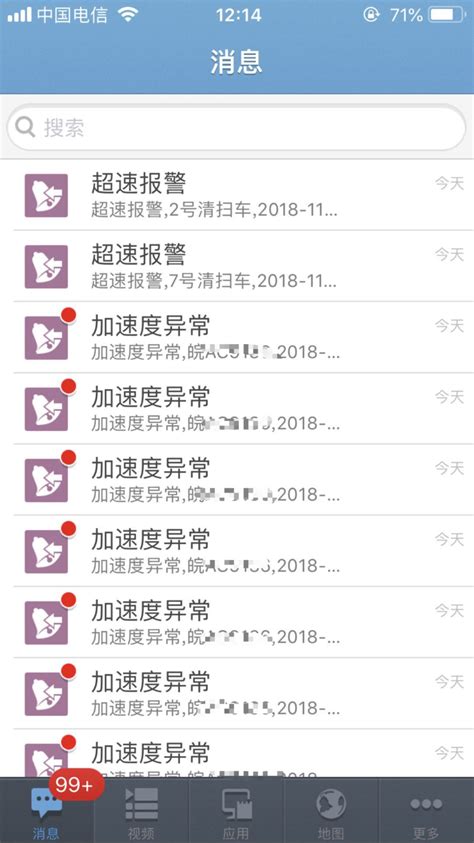龙华智慧大厦
Title: Leveraging Big Data for Smart Environmental Sanitation in Longhua
Longhua, as a dynamic urban area, faces the challenge of maintaining environmental cleanliness while managing its waste effectively. The integration of big data into environmental sanitation, termed "Smart Environmental Sanitation," offers promising solutions. This article delves into the concept of leveraging big data for smart environmental sanitation in Longhua, exploring its benefits, applications, and potential challenges.
1.
Optimized Resource Allocation:
Big data analytics enables authorities to allocate sanitation resources efficiently based on realtime demand and usage patterns.
2.
Predictive Maintenance:
Predictive analytics can anticipate equipment failures, allowing proactive maintenance to prevent disruptions in waste management services.
3.
Behavioral Insights:
Analyzing data on waste generation and disposal behaviors helps in designing targeted awareness campaigns to encourage responsible waste management practices.
1.
Route Optimization:
Utilizing GPS and traffic data, waste collection routes can be optimized for efficiency, reducing fuel consumption and carbon emissions.
2.
Sensor Technology:
Installing sensors in bins can provide realtime data on fill levels, enabling timely collection and preventing overflow or littering.
3.
Public Engagement:
Mobile apps can engage residents by providing information on waste sorting guidelines, collection schedules, and reporting mechanisms for sanitation issues.
1.
Data Privacy and Security:
Safeguarding sensitive data while ensuring accessibility for analysis requires robust data management protocols and encryption mechanisms.
2.
Infrastructure Requirements:
Implementing big data solutions necessitates investment in sensor networks, data processing systems, and skilled personnel.
3.
Community Participation:
Effective implementation relies on community participation and cooperation, necessitating extensive outreach and education efforts.
1.
Stakeholder Collaboration:
Engage local authorities, technology providers, waste management companies, and community representatives in collaborative planning and implementation.
2.
Pilot Projects:
Initiate smallscale pilot projects to test feasibility, assess effectiveness, and gather feedback before scaling up implementations across Longhua.
3.
Continuous Evaluation:
Regularly evaluate the performance of smart environmental sanitation initiatives, incorporating feedback for continuous improvement and adaptation.
Embracing big data for smart environmental sanitation holds immense potential for Longhua, offering efficient waste management solutions while fostering sustainable urban development. By leveraging technology, datadriven insights, and community engagement, Longhua can pave the way towards a cleaner, healthier, and more livable environment for its residents.
标签: 深圳龙华环卫 智慧环卫大数据平台 龙华智慧环卫大数据平台 龙华环卫有限公司招聘 龙华智慧环卫大数据中心
相关文章
-
景顺成长,探索中国城市化进程中的绿色发展之路详细阅读

在21世纪的今天,城市化已成为全球范围内不可逆转的趋势,中国,作为世界上人口最多的国家,其城市化进程尤为引人注目,随着经济的快速发展,城市化带来的问题...
2025-10-01 295
-
深度解析,股票000777中核科技的投资价值与未来展望详细阅读

在当今的投资市场中,股票投资无疑是一个热门话题,而在众多股票中,股票代码为000777的中核科技因其独特的行业地位和发展潜力,吸引了众多投资者的目光,...
2025-09-30 346
-
深圳证券交易所交易规则,投资市场的指南针详细阅读

亲爱的读者,想象一下,你正站在一个繁忙的十字路口,四周是熙熙攘攘的人群和川流不息的车辆,每个人都在按照交通规则行事,红灯停,绿灯行,黄灯亮起时,大家会...
2025-09-30 307
-
基金202005,揭秘投资背后的逻辑与策略详细阅读

在投资的世界里,基金是一种备受瞩目的投资工具,它以其多样化的投资组合、专业的管理团队和相对稳定的收益吸引了众多投资者的目光,我们将深入探讨基金2020...
2025-09-30 306
-
探索中国平安行销,策略、实践与未来趋势详细阅读

在当今竞争激烈的市场环境中,行销策略对于企业的成功至关重要,中国平安,作为中国领先的金融服务集团,其行销策略不仅在国内市场上取得了显著成效,也为全球行...
2025-09-29 278
-
深入解析数码视讯股票,投资价值与市场前景详细阅读

在当今数字化时代,数码视讯行业作为信息技术领域的重要组成部分,正逐渐成为投资者关注的焦点,本文将深入探讨数码视讯股票的投资价值与市场前景,帮助投资者更...
2025-09-29 334
-
悦康药业,创新与责任并重,引领健康未来详细阅读

在当今这个快节奏、高压力的社会中,健康成为了人们越来越关注的话题,而在医药行业中,有这样一家企业,它以创新为驱动,以责任为担当,致力于提供高质量的药品...
2025-09-29 279
-
深度解析,定向增发股票背后的资本游戏与投资策略详细阅读

在资本市场的棋盘上,股票的每一次变动都牵动着投资者的神经,定向增发作为一种特殊的融资方式,因其能够为上市公司带来资金的同时,也为投资者提供了新的投资机...
2025-09-29 286
